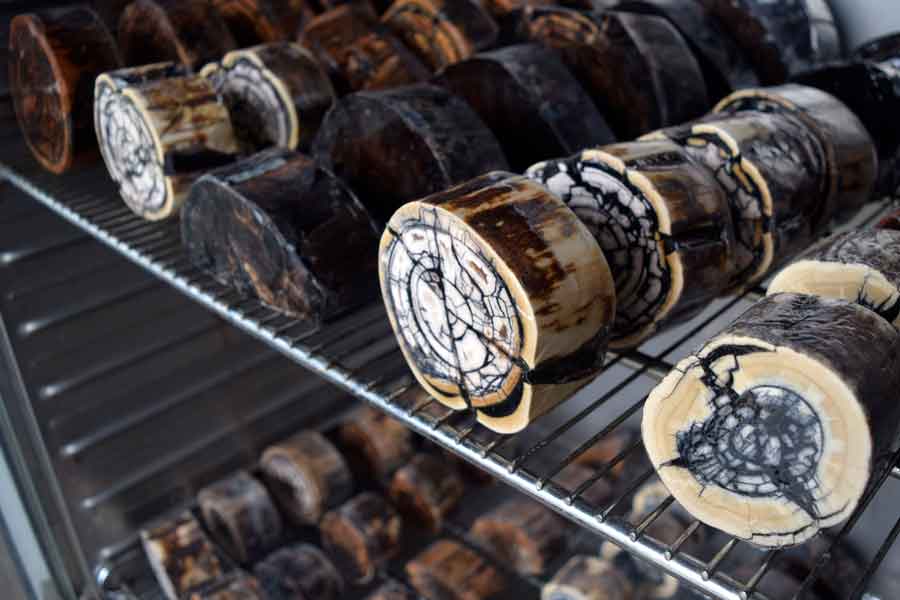Extended Ivory Act regulations will take effect on 28 January 2025 – Propertymark

Stay ahead of the competition and become the expert your clients rely on. Join a respected association with over 17,800 members to access the latest industry information and best practices, enhancing your skills and advancing your career.
We launched Company Advantage in response to member demand, using collective buying power to secure high-quality services at a fraction of the usual cost. The benefits go beyond the investment, delivering real value.
Our partnership with Move iQ’s Phil Spencer is founded on our shared desire to help the general public identify the agents in their local area who are best in class, but what does that mean?
#PMOne will feature an impressive line-up of speakers, including renowned economists and legal experts, who will provide invaluable insights into the industry’s future and out-of-the-box tools. Book your ticket today.
Trading in ivory from the common hippopotamus, killer whale, narwhal and sperm whale will now be banned under The Ivory Act 2018 (Meaning of “Ivory” and Miscellaneous Amendments) Regulations 2025. The new legislation was originally laid in parliament in May 2023, under the previous UK Government, but implementation has been delayed due to a lack of parliamentary time.
Other whale products such as baleen and bone are not part of the extension and, although it was included in the consultation, nor is walrus ivory. The Department for Environment, Food and Rural Affairs has stated that walrus will continue to have protections under existing legislation covering the trade of seal products.
Narwhal, killer whale, sperm whale and hippopotamus are already listed under the Convention on International Trade in Endangered Species of Fauna and Flora (CITES) and previously only items older than 1947 could be traded.
The new ban will go much further, effectively wiping out the trade in narwhal tusks and scrimshaw – sperm whale teeth engraved by sailors in the 18th and 19th centuries. As most of these works of art were made using solid ivory, none would be eligible for registration under the ‘de minimis’ exemption that allows the sale of pre-1947 objects containing less than 10% ivory.
When the Grand Committee in the House of Lords considered the regulations in November 2024, concerns were raised that low-value items of historic interest are likely to end up in landfill because they cannot be sold.
Standard ‘de minimis’ exemptions exist under the Ivory Act for musical instruments made before 1975 with less than 20% ivory by volume, items made before 3 March 1947 with less than 10% ivory by volume, and portrait miniatures made before 1918 with a total surface area of no more than 320 square centimetres.
Exemptions are also included for items a qualifying museum intends to buy or hire, and items made before 1918 that are of outstandingly high artistic, cultural or historical value.
The registration process for de minimis exemption costs £20 per item or £50 for a group of objects (up to a maximum of 20). Owners wishing to sell under the ‘outstanding artistic, cultural or historical value’ exemption must pay a fee of £250 and submit details to a committee of museum specialists for assessment.
Items that cannot legally be sold can be kept for personal use, lent, given as gifts, or bequeathed in a will, if no payment, exchange or barter is involved.
The Act applies in England, Wales, Scotland and Northern Ireland. Propertymark has produced a comprehensive fact sheet for members to download which contains key information agents need to know to be compliant.
The purpose of the Ivory Act is to prohibit commercial activities concerning ivory in the UK and the import and re-export of ivory for commercial purposes to and from the UK. This includes intra-EU trade to and from the UK.
Propertymark works to ensure our members understand the full extent of their legal obligations, and for letting agents this includes tenancy deposit protection. The Siddeeq v Alaian court case highlighted concerns about how and when prescribed information must be served, and with the implementation of the Renters’ Rights Bill on the horizon, it’s a relevant reminder that agents must be precise and compliant when dealing with tenancy deposits in England and Wales.
Three new museums are set to join the list of bodies that can advise the Animal and Plant Health Agency on applications for exemption certificates under the Ivory Act 2018. If an owner wants to sell ivory-containing items which were made before 1918 and are of outstandingly high artistic, cultural, or historic value, they must be expertly assessed by recognised institutions.
US trade tariffs are shifting global auction dynamics, and UK auctioneers are being drawn into the ripple effects of international policy. While these measures are largely designed to protect US industries from Chinese competition, theyâve also had knock-on effects on transatlantic trade, complicating the movement of goods and altering buyer behaviour in ways that UK auction businesses are starting to feel. So, how can UK auctioneers respond with confidence to a changing market?
The Digital Markets, Competition and Consumers Act (DMCC Act) was enacted on 24 May 2024 and provides regulation of competition in digital markets, amending the Competition Act 1998 and the Enterprise Act 2002 and encompassing the protection of consumer rights and other related rights.
Arbon House, 6 Tournament Court
Edgehill Drive, Warwick CV34 6LG
[email protected]
01926 496 800
© 2025 Propertymark Ltd. trading as Propertymark. Registered in England and Wales No. 00897907
© 2025 Propertymark Qualifications Ltd. Registered in England and Wales No. 06001740
Design & Development by Pixl8 Group

